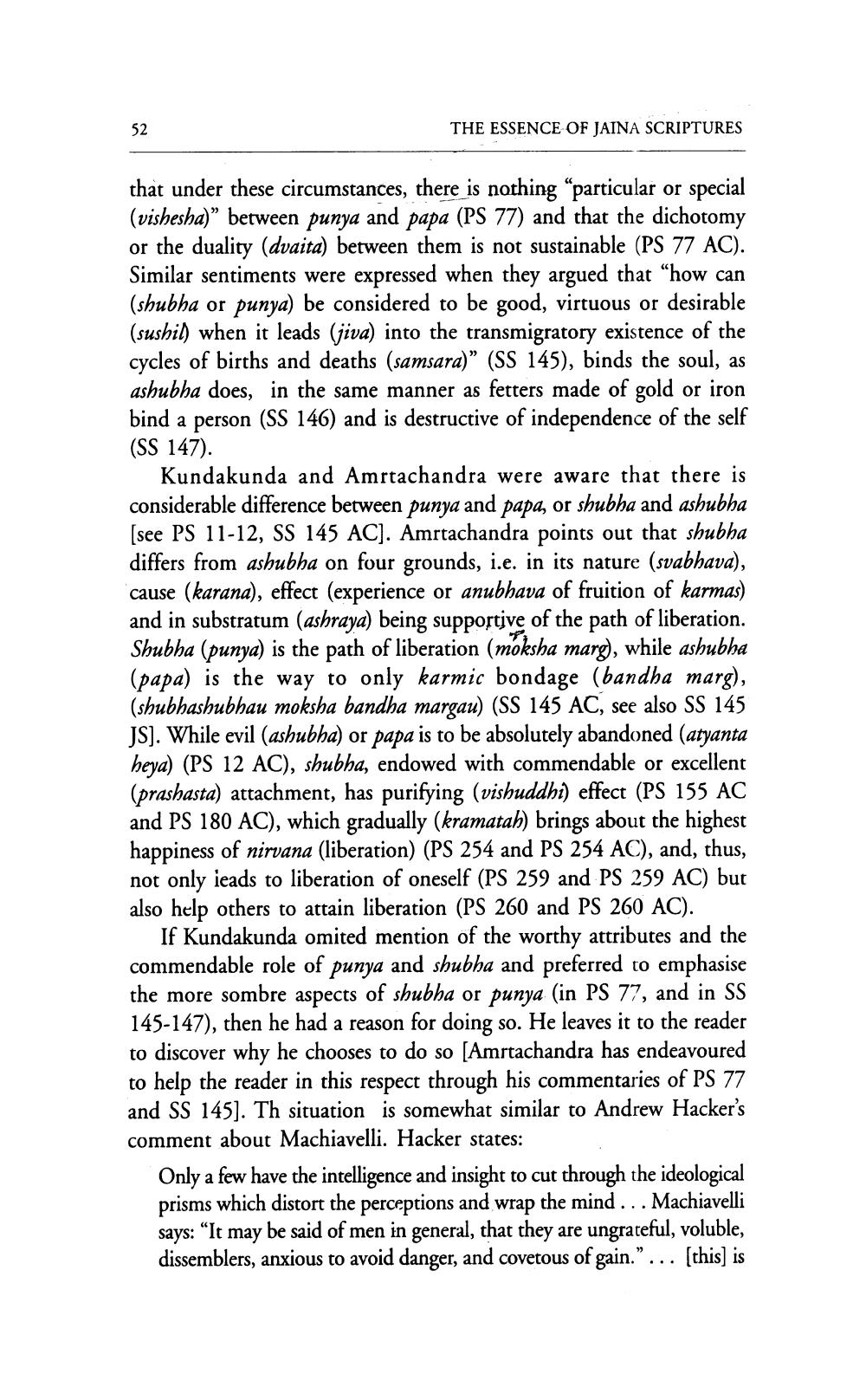________________
THE ESSENCE OF JAINA SCRIPTURES
that under these circumstances, there is nothing “particular or special (vishesha)” between punya and papa (PS 77) and that the dichotomy or the duality (dvaita) between them is not sustainable (PS 77 AC). Similar sentiments were expressed when they argued that “how can (shubha or punya) be considered to be good, virtuous or desirable (sushil) when it leads (jiva) into the transmigratory existence of the cycles of births and deaths (samsara)” (SS 145), binds the soul, as ashubha does, in the same manner as fetters made of gold or iron bind a person (SS 146) and is destructive of independence of the self (SS 147).
Kundakunda and Amrtachandra were aware that there is considerable difference between punya and papa, or shubha and ashubha (see PS 11-12, SS 145 AC). Amrtachandra points out that shubha differs from ashubha on four grounds, i.e. in its nature (svabhava), cause (karana), effect (experience or anubhava of fruition of karmas) and in substratum (ashraya) being supportive of the path of liberation. Shubha (punya) is the path of liberation (moksha marg), while ashubha (papa) is the way to only karmic bondage (bandha marg), (shubhashubhau moksha bandha margau) (SS 145 AC, see also SS 145 JS). While evil (ashubha) or papa is to be absolutely abandoned (atyanta heya) (PS 12 AC), shubha, endowed with commendable or excellent (prashasta) attachment, has purifying (vishuddhi) effect (PS 155 AC and PS 180 AC), which gradually (kramatah) brings about the highest happiness of nirvana (liberation) (PS 254 and PS 254 AC), and, thus, not only ieads to liberation of oneself (PS 259 and PS 259 AC) but also help others to attain liberation (PS 260 and PS 260 AC).
If Kundakunda omited mention of the worthy attributes and the commendable role of punya and shubha and preferred to emphasise the more sombre aspects of shubha or punya (in PS 77, and in SS 145-147), then he had a reason for doing so. He leaves it to the reader to discover why he chooses to do so (Amrtachandra has endeavoured to help the reader in this respect through his commentaries of PS 77 and SS 145). Th situation is somewhat similar to Andrew Hacker's comment about Machiavelli. Hacker states:
Only a few have the intelligence and insight to cut through the ideological prisms which distort the perceptions and wrap the mind ... Machiavelli says: “It may be said of men in general, that they are ungrateful, voluble, dissemblers, anxious to avoid danger, and covetous of gain.” ... (this) is




